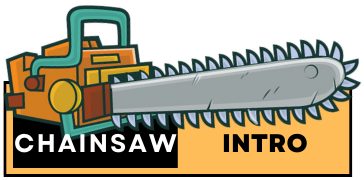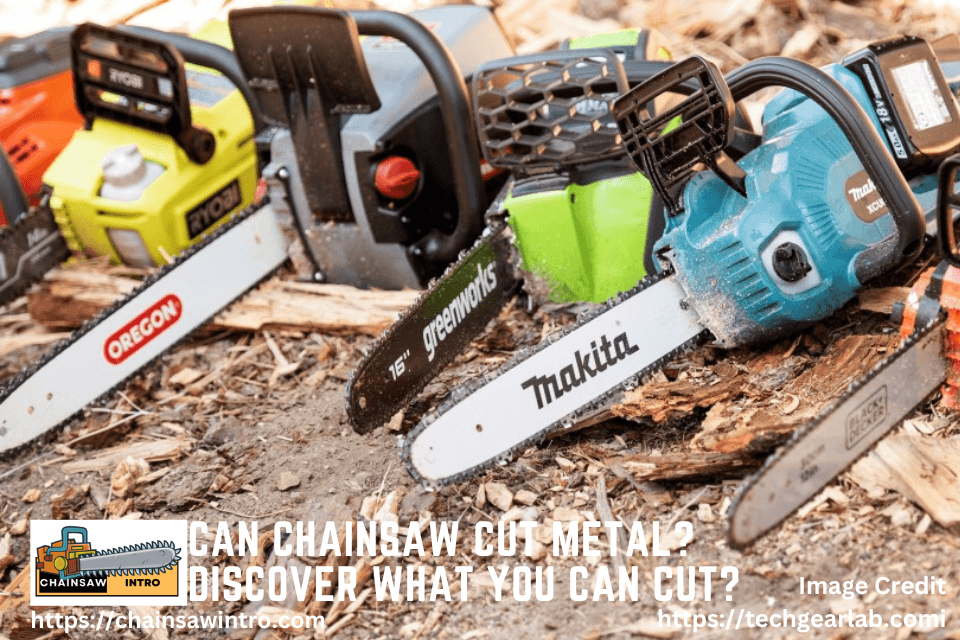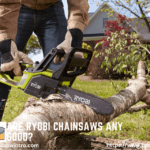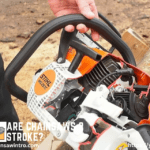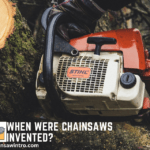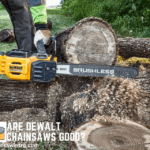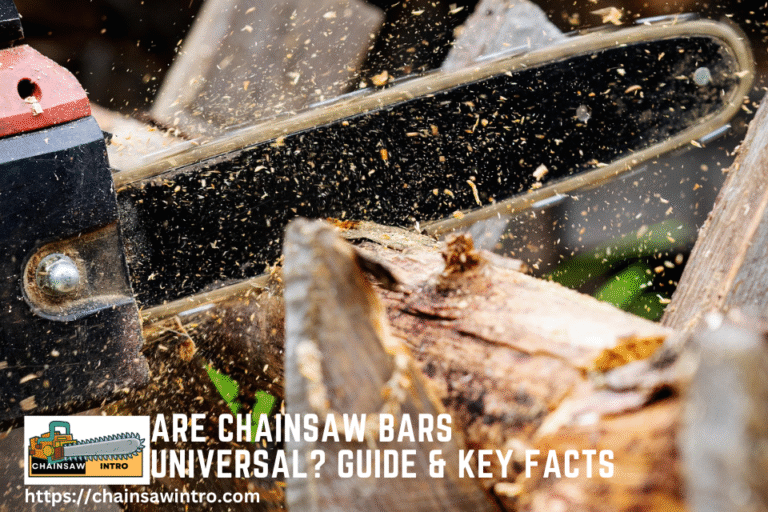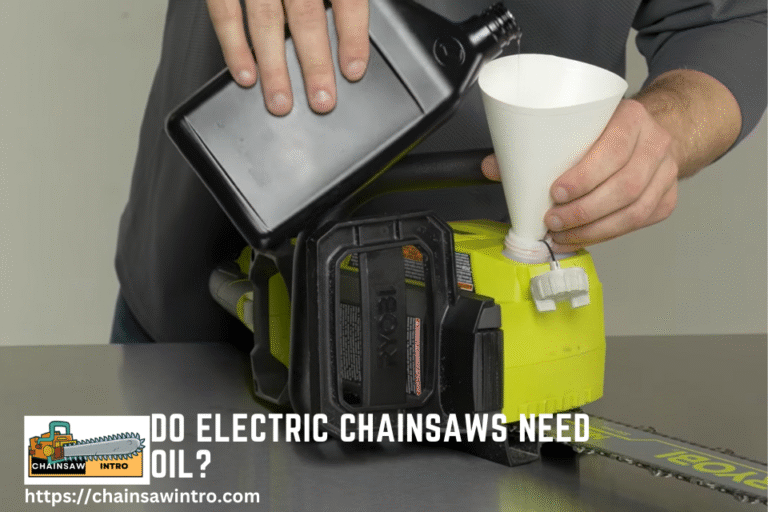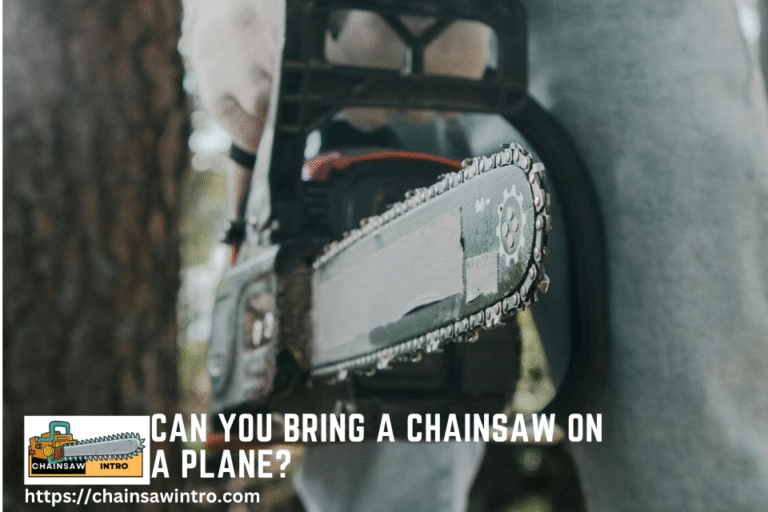Chainsaws are designed to be powerful cutting tools, capable of slicing through tough materials like hardwood and large logs. But many DIYers and homeowners often wonder: Can a chainsaw cut metal? The simple answer is no—chainsaws are not designed for cutting metal. Attempting it can damage the saw, dull the chain, and even create safety hazards. In this guide, we’ll break down why chainsaws shouldn’t be used on metal, what happens if you try, and the safer alternatives for metal cutting.
Why Chainsaws Are Not Meant to Cut Metal?
Chainsaws are specifically engineered to cut wood and wood-based materials. The teeth on the chain are shaped to bite into wood fibers, using high-speed rotation and lubrication to make clean cuts. Metal, on the other hand, is far denser and requires different cutting technology.
Here are the main reasons chainsaws aren’t suited for metal:
- Chain Design – Chainsaw chains are made for cutting softer materials like wood. Metal instantly dulls the teeth.
- Overheating Risk – Cutting metal creates excess heat and friction, which can cause the bar and chain to overheat or warp.
- Sparks and Fire Hazard – Hitting metal can produce sparks, potentially causing a fire, especially in dry conditions.
- Engine Damage – The additional strain can overload the motor, leading to reduced lifespan or catastrophic failure.
Can A Chainsaw Go Through Metal?
What Happens If a Chainsaw Hits Metal?
Regardless of what type of chainsaw you own, any chainsaw that comes in contact with metal will damage the chain. When a chainsaw hits metal, the saw can stall and stop. The potential for destruction is even higher if you’re using an electric chainsaw that lacks enough torque to compensate for the added resistance it encounters from metal.
In addition to the chain, metal can also damage the bar of your chainsaw. These damages could cost you hundreds of dollars to fix, so if you need to cut through metal or other types of tough material, use a saw designed specifically for this task.
While chainsaws aren’t designed for metal cutting, accidents happen. For example, you might unknowingly hit a nail, staple, screw, or piece of barbed wire embedded in a tree or wooden post. When this happens, several issues may occur:
- Instant Dulling of the Chain – Even small nails can blunt the chain, making it harder to cut wood afterward.
- Sparks and Kickback – Contact with metal may create sparks and increase the risk of dangerous kickback.
- Chain Damage – The teeth may chip or break, requiring sharpening or chain replacement.
- Increased Wear on Engine – Strain on the motor from trying to power through metal weakens the chainsaw over time.
This is why professionals often inspect old wood or logs for hidden objects before cutting.
Can Specialized Chainsaws Cut Metal?
Although standard chainsaws cannot cut metal, there are specialized cutting tools that look similar to chainsaws but are designed specifically for metal or concrete. These include:
- Rescue Chainsaws – Used by firefighters and emergency crews, equipped with carbide-tipped chains for cutting through metal, roofing, or concrete.
- Cut-Off Saws (Demolition Saws) – Gas-powered or electric saws with abrasive wheels that can cut metal, rebar, and steel.
- Angle Grinders and Metal-Cutting Blades – Safer and more precise alternatives for DIY projects.
Unless you’re a professional with access to specialized equipment, using a chainsaw for metal cutting is not recommended.
Major Risks of Using Chainsaw for Metal Cutting
Chainsaw vs metal risks are significant, making this practice hazardous without proper precautions. Sparks from metal contact can ignite flammable materials like dry grass or sawdust, causing fires—especially in wildfire-prone areas where equipment sparks contribute to 10% of incidents, where the chain bounces back, is amplified when hitting hard metal, causing over 30% of chainsaw injuries (36,000 annually in the U.S.).
Tool damage is another issue: metal dulls chains rapidly, warps bars from friction heat (over 500°F), and strains engines, leading to repairs costing $50-$200. In wet conditions, electrical risks arise with corded saws, while battery models like the Greenworks 80V may overheat motors during prolonged metal cuts. User stories on Reddit’s r/Chainsaw warn of shattered chains when cutting rebar, emphasizing that without a bi-metal blade, it’s “not worth the risk.” Always prioritize chainsaw metal cutting safety by using PPE (chaps, helmet, gloves, glasses, boots) and working in cleared areas.
Safer Alternatives for Cutting Metal
Instead of trying to cut metal with a chainsaw, use the right tool for the job. Here are some better options:
- Angle Grinder – Great for cutting bolts, pipes, and sheet metal.
- Reciprocating Saw (Sawzall) – With the right blade, it can cut nails, screws, and metal pipes.
- Hacksaw – Affordable and effective for small jobs.
- Plasma Cutter – Ideal for precision cuts in thick metal sheets.
- Cut-Off Saw – Best for heavy-duty tasks like cutting rebar or structural steel.
These tools are safer, more effective, and designed for cutting metal, unlike chainsaws.
When Chainsaws Accidentally Cut Metal?
Sometimes, you don’t intend to cut metal, but it happens. For example:
- Cutting firewood from old lumber with hidden nails.
- Sawing into trees that grew around fencing or wire.
- Working on construction or demolition projects.
If your chainsaw chain hits metal, here’s what to do:
- Stop Cutting Immediately – Continuing may worsen damage.
- Inspect the Chain – Look for dull or chipped teeth.
- Sharpen or Replace the Chain – If damage is minor, you can file the chain. Otherwise, replace it.
- Check the Bar for Damage – Excessive heat or sparks can warp the guide bar.
- Avoid Reusing on Metal – Reserve your chainsaw only for wood after repairs.
Conclusion | Can Chainsaws Cut Metal?
Standard chainsaws are not designed to cut metal. Attempting to do so can damage the saw, dull the chain, and create safety hazards such as sparks and fire. However, if you accidentally hit small metal objects like nails or screws, your chainsaw won’t necessarily be destroyed—but it will require sharpening or chain replacement.
For projects that involve cutting metal, the best approach is to use specialized metal-cutting tools like grinders, cut-off saws, or reciprocating saws. Save your chainsaw for what it does best—cutting wood.
By understanding the limits of your chainsaw and using the right tools for the job, you’ll save money, protect your equipment, and work much more safely.
Frequently Asked Questions
Can a chainsaw cut through nails in wood?
Yes, but it’s not recommended. Hitting a nail with a chainsaw will dull the chain instantly and may even chip or break the teeth. Always inspect wood for hidden nails before cutting.
What happens if my chainsaw hits metal?
If your chainsaw hits metal, the chain will likely become dull, spark, or even get damaged. Stop cutting immediately, inspect the chain, and sharpen or replace it if necessary.
Can chainsaws cut rebar or steel?
No. Standard chainsaws cannot cut rebar or steel. For these materials, use a cut-off saw, angle grinder, or reciprocating saw with the proper blade.
Are there chainsaws designed for metal cutting?
Yes, specialized tools like rescue chainsaws with carbide chains or demolition saws can cut metal, but they are professional-grade equipment, not regular consumer chainsaws.
Is it dangerous to cut metal with a chainsaw?
Yes. Cutting metal with a chainsaw can cause sparks, kickback, chain damage, and even fire hazards. Always use the right tool for the material.
What should I do after my chainsaw chain hits metal?
Sharpen the chain if the damage is minor. If the teeth are chipped or broken, replace the chain to avoid unsafe cutting performance.
What kind of metal can a chainsaw cut?
There are three types of metals that most people attempt to cut with their chainsaws: thin pieces of tin, steel, and rebar.
- Thin pieces of tin– This is the easiest metal to cut through with a chainsaw. All you need to do is drill two small holes in the sheet you want to cut, then insert the blade of your chainsaw into these holes and proceed to make your cuts. Remember, using a chainsaw like this will dull your blades faster than normal.
- Steel– Steel can be very difficult to cut through with a chainsaw. However, it is possible with the right saw and enough patience.
- Rebar– Because of the thickness and density of rebar, you cannot use a standard chainsaw to cut through it. It may seem like a good idea at first, but you’ll just end up damaging your blade in the process. Instead, opt for a concrete or steel cutting chainsaw.
What Can a Chainsaw Not Cut?
Chainsaws are one of the most versatile and powerful tools in any woodworker’s arsenal. However, there are still some things that a chainsaw cannot cut. Here is a list of materials that a chainsaw cannot cut:
- Concrete: Concrete is too hard for a chainsaw to penetrate.
- Stone: Stone is also too hard for a chainsaw to cut through.
- Metal: Metal will quickly dull or break a saw blade. Some metals, like aluminum, can also be melted by the heat generated from cutting, which can damage the saw.
- Plastics: Plastics can be cut with a chainsaw, but they will melt rather than being cleanly cut. This can damage both the saw and the plastic piece being Cut.
w which blade will work best depending on what kind of material you plan to cut through. For example: if you plan on working primarily with thinner sheets then a bandsaw might be ideal whereas someone who works mostly larger pieces would do well using either an electric miter box or radial arm saw instead.”
Can a Chainsaw Cut Through a Knife?
A chainsaw can, in fact, cut through a knife. However, it is not recommended to do so as it can damage the chainsaw and/or the knife. If you must use a chainsaw to cut through a knife, be sure to use proper safety equipment and follow all safety precautions.
I’ve spent the past 10+ years working with chainsaws in forestry, landscaping, and firewood preparation. Along the way, I’ve gained certifications in chainsaw operation and safety and built extensive experience with trusted brands like Stihl, Husqvarna, and Oregon. I enjoy sharing my knowledge through step-by-step guides, tool reviews, and safety advice so others can get the most from their chainsaws while staying safe on every job.
